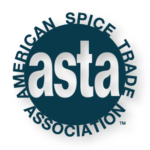Following the events of September 11, 2001, the U.S. Congress passed the Public Health Security and Bioterrorism Preparedness and Response Act of 2002
The following four sections are of particular importance to ASTA members.
Section 303: Administrative Detention
Amends Section 304 to authorize FDA to order the detention of food if an officer or qualified FDA employee finds, during an inspection, examination, or investigation, credible evidence or information indicating the article presents a threat of serious adverse health consequences or death to humans or animals.Specifies the detention must be approved by an official at the district director level or higher.
Specifies period of detention may not exceed 20 days unless a greater period, not to exceed 30 days, is necessary to enable the Secretary to pursue a seizure under Section 304(a) or to seek an injunction under Section 302. Requires the Secretary to establish regulations for expedited procedures for instituting such actions for perishable foods, such as fresh produce, fresh fish and fresh seafood products.
Allows the detention order to require that the article be labeled or marked as detained; requires the article to be removed to a secure facility, as appropriate. Specifies that a detained article may not be transferred until released or detention expires.
Specifies an appeals process which requires the Secretary, after providing for an informal hearing, to confirm or terminate an order within 5 days of an appeal. This confirmation or termination shall be considered final agency action. If the Secretary fails to comply with the above requirements, the order is deemed terminated. The appeals process terminates if the Secretary institutes action under Section 304(a) or Section 302.
Amends Section 301 making it a prohibited act to transfer an article of food in violation of a detention order or to remove or alter any required mark or label identifying the article as detained.
Amends Section 801 to provide for temporary holds at ports of entry. Authorizes an officer or qualified FDA employee to request the Secretary of the Treasury to hold food at the port of entry for a period not to exceed 24 hours. This is to occur when the employee has credible evidence or information that an article of food presents a threat of serious adverse health consequences or death to humans or animals; and the officer needs more time to inspect, examine, or investigate. The request must be approved at the district director level or higher.
Directs the Secretary to ask the Secretary of the Treasury to remove a held article to a secure facility, as appropriate. States the article may not be transferred during the holding period.
Requires the Secretary to notify the State in which the port of entry is located.
Requires us to issue a regulation to expedite hearing procedures for perishable foods.
The FDA plans to establish informal hearing procedure.
Section 305: Registration of Food Facilities
Amends the Act by adding new section 415 to require registration for food facilities. Requires the owner, operator, or agent in charge of a domestic or foreign facility to submit a registration to the Secretary. For a foreign facility, the registration must include the name of the U.S. agent for the facility.
The registration shall contain information necessary to notify the Secretary of the name and address of each facility at which, and all trade names under which, the registrant conducts business and, when determined necessary by the Secretary through guidance, the general food category as identified under 21 CFR 170.3. Requires the registrant to notify the Secretary in a timely manner of changes to such information.
Requires the Secretary to notify the registrant of receipt of the registration and to assign a registration number to each facility. Requires the Secretary to compile and maintain an up-to-date list of registered facilities. Protects the list and any registration documents from disclosure under Section 552 of Title V, U.S. Code.
Defines facility as any factory, warehouse, or establishment of an importer that manufactures, processes, packs, or holds food. Specifically excludes farms, restaurants, other retail food establishments, nonprofit food establishments in which food is prepared for or served directly to the consumer; and fishing vessels (except such vessels engaged in processing as defined in 21 CFR 123.3(k). [Note: this covers animal feed and dietary supplement manufacturers.] Limits foreign facilities to those that manufacture, process, pack, or hold food only if food from such facility is exported to the U.S. without further processing or packaging outside the U.S.
Amends Section 301 making failure to register a prohibited act.
Amends Section 801 to require that an article of food offered for import from an unregistered foreign facility be held at the port of entry until the facility is registered.
Authorizes the Secretary to provide for and encourage the use of electronic methods of registration; however, paper registration is allowed.
Requires the Secretary to promulgate proposed and final regulations within 18 months of enactment. The requirement takes effect upon the expiration of the 18-month period even if the Secretary does not meet the deadline.
Section 306: Maintenance and Inspection of Records for Foods
Requires the Secretary to promulgate proposed and final regulations within 18 months of enactment to establish requirements for the establishment and maintenance of records needed to determine the immediate previous sources and the immediate subsequent recipients of food. Limits recordkeeping requirement to two years.
Directs the Secretary to consider the size of a business in promulgating the regulations.
Directs the Secretary to take appropriate measures to ensure protection from disclosure of sensitive information.
Amends Section 704 to reflect the requirement to provide the Secretary with access to records.
Amends Section 301 making it a prohibited act to refuse to permit access to or copying of any required record or to fail to establish or maintain any required record.
Section 307: Prior Notice of Imported food Shipments
Amends Section 801 to require prior notice of imported food shipments. The notice is required to provide the article, the manufacturer and shipper, the grower (if known within the specified time in which notice is required), the country of origin, the country from which the article is shipped, and the anticipated port of entry. States that, if notice is not provided, the article shall be refused admission.
Requires the Secretary, after consultation with Secretary of the Treasury, to issue regulations that specify the period of advance notice and says that shall be no less than the minimum amount of time necessary for the Secretary to receive, review, and appropriately respond to such notification. It states the period may not exceed five days.
Requires the Secretary to promulgate proposed and final regulations within 18 months of enactment. If the Secretary fails to meet the deadline, the requirement takes effect upon expiration of the 18-month period. In that event, the default period of notice will be no less than 8 hours and no more than five days.
States that an article of food offered for import and prior notice has not been provided, such article shall be held at the port of entry until the importer, owner, or consignee complies. Directs the Secretary, in carrying out this requirement, to determine whether there is any credible evidence or information indicating that such article presents a threat of serious adverse health consequences or death to humans or animals.
Amends Section 301 making it a prohibited act to import of offer for import an article of food in violation of these requirements.
Additional information can be located on the FDA Bioterrorism Act webpages:
Overview of Bioterrorism Act Establishment
Bioterrorism Act of 2002






